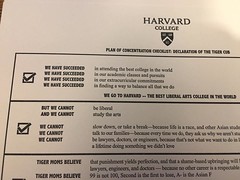INDIVIDUAL INSTRUCTION (Providence or Boston)
Private Mentoring in Literary Translation
Selecting a text, research, accessing translation resources (graduate degrees, grants, fellowships, residencies, publication opportunities), developing a strategy and approach, manuscript workshopping and editing, querying publishers and pitch material development.
Private Mentoring in Poetry Writing & Publishing
Manuscript workshopping and editing, publication submission basics, developing cover letters, researching and applying to grants, fellowships, residencies, and MFA programs.
Private Instruction in Letterpress Printing
Hands-on one-on-one instruction on letterpress printing from fundamentals (setting type, lockups, press operations) to advanced or experimental techniques (sandragraph, collagraph, pressure printing).
Private Coaching in Academic Writing
Graduate school applications, papers, dissertations.
Private Instruction in Digital Book Arts
InDesign for letterpress, desktop publishing, InDesign fundamentals, book design and typography.
COURSES DEVELOPED AND TAUGHT
Art of the Book
Brown University, Fall 2017 – present
@brownbookarts
Syllabus
This course explores the handmade book as a space for artistic production. Through demonstrations and assignments students will acquire traditional bookmaking skills as typesetters, printers, papermakers, and binders, preparing the student for a final editioned book project. Students will practice combining structure and content in a concise and meaningful way. The basics of operating letterpresses, papermaking, basic book structures, digital and analog image making, and foundations in typography and design as it applies to letterpress will be covered. This course will focus on handmade processes supplemented by digital tools.
Experimental Poets of Color
Brown University, Fall 2016, Spring 2018
www.experimentalpoetsofcolor.com
In this course we’ll read and critically engage with contemporary experimental poets of color writing in English in the US and Canada. Exploring the intersection of poetics, aesthetics, critical race (and mixed race) theory, and social justice activism in the arts, we will question the modernist and post-modernist assumptions that experimentation and innovation are exclusively the domain of whiteness. We will explore how racism, colonialism, and other contemporary systems of oppression condition responses to poets of color, and consider how poets of color respond to and engage with these systems both overtly and through their aesthetic experimentation.
Manifesto!
(the artistic component of The Spirit of ’68: Youth Protest in Europe)
Harvard University, Spring 2016
Why were students and youth so angry in 1968? What were their protests about? This seminar examines the “spirit of 1968” in Prague, Paris, and Berlin. In addition to examining events in each city we will consider the influence of the black panther and feminist movement on these protests. The protests were universal – each featured youth involvement, commitment to a counterculture, challenges to racial oppression, workers’ rights, and state controls. Yet each march and sit-in was also local – embedded in a national history and culture. In each unit we examine how political critiques took form and how they intersected with cultural expression. We explore the anger and passion that drove the protests of 1968 through an analysis of the films, music, manifestos, and memoirs produced by participants in the events. This year students will be given the opportunity to research, create, and produce their own letterpress manifesto with visiting artist Erica Mena.
The Art of Stealing: Critical and Creative Appropriative Art
UMass Boston Honors College, Summer 2013
https://artofstealing.wordpress.com/
Syllabus
This course will examine the literary avant-garde, new media and digital cultures in order to frame discussions of (and our own experiments with) hacking, genre hybridity, community and identity formation, appropriation and authenticity, and participatory cultures. We’ll explore how 20th century experimental movements like Dada, Surrealism and Oulipo inform the contemporary digital-cultural landscape in things like photoshopped collages, memes, and mashups. We’ll look at 21st century literary arts movements like Flarf and Conceptual Writing to guide our own practices of appropriative creative production in our information-overload age. We’ll explore plagiarism, intellectual property, and open-source information building and creation while thinking about collaborative artistic production and collective action (for example in social networks). This is a reading and production course, meaning that our discussions and readings will inform creative practices and experiments, leading up to a final creative project with a critical framework.
Poetry 1 Workshop
Brown University, Fall 2013, Spring 2014
www.poetry1sec3.wordpress.com
This is a generative workshop. The goals of our workshop time, and our readings, will be to encourage you to develop new modes, skills, and techniques in writing creatively. We will experiment with constraint and conceptual writing practices; delve into research-based poetry; practice literary translation; and generally be open to as many processes and approaches as we can. The one thing we will not be doing in this class is writing autobiographically (except a few, special times). Our goal will be to write almost entirely outside the autobiographical first-person (or self-referential third-person).
Translation as Art: Reading and Translating Literature
UMass Boston Honors College, Summer 2011
Syllabus
What is literary translation? Why think of it as an art, rather than a craft or skill? Essentially, literary translation makes available works of literature to readers who could not otherwise access them. Works of literature, opposed to non-literary works, rely on poetics (not just poetry, of course) to augment the ‘meaning’ of the work. Literary works operate on many levels, only one of which is the semantic. It is this complexity that requires artistry to engage with in the act of translation.|
Translation is essentially a series of decisions, ideally consciously made, about what to prioritize in a given project of literary (re)creation. One goal for this course is to practice prioritizing different parts of different literary works, while reading translations that make decisions in unusual, unsettling, artistic and challenging ways.
Translation is an inherently political act, from the choice the translator makes of what text to translate (and why) to the choices that the translator makes in engaging with the specific components of the text. The theoretical readings that accompany our creative practice will hopefully shed some light on our own process, challenge us to be critical of our own decisions, and even suggest new ways of engaging with the texts we are reading and translating.
